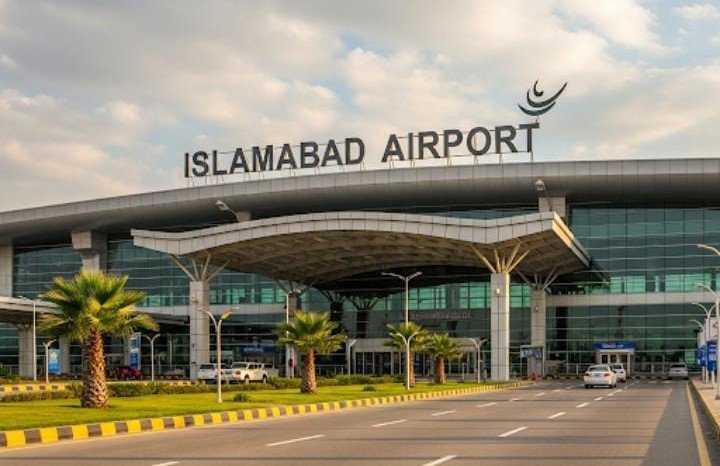Türkiye has dropped a bombshell in its relations with Israel, announcing a complete halt to trade and closing its airspace to Israeli aircraft on August 29, 2025. Turkish Foreign Minister Hakan Fidan made the stunning declaration during a fiery parliamentary session, citing Israel’s actions in Gaza as the driving force behind the Türkiye Israel Trade Ban. This drastic step, which includes barring Turkish ships from Israeli ports, marks a major escalation in tensions between the two nations, sending shockwaves across the Middle East.
The Türkiye Israel Trade Ban has set social media ablaze, with reactions ranging from support to concern about its ripple effects. From Ankara to Istanbul, people are talking about what this means for Türkiye’s role on the global stage. Here’s the full story on the Türkiye Israel Trade Ban, its impact, and what’s next for the region.
What Sparked the Türkiye Israel Trade Ban?
The Türkiye Israel Trade Ban stems from Türkiye’s growing outrage over Israel’s military operations in Gaza, which Foreign Minister Hakan Fidan called “massacres” and “genocide” during his August 29 speech. He accused Israel of blocking humanitarian aid and using starvation as a weapon, making Gaza uninhabitable. The decision builds on Türkiye’s earlier trade suspension in May 2024, when direct trade worth $7 billion annually was halted to demand a ceasefire and aid access in Gaza. Fidan emphasized that no other country has taken such a bold step, positioning Türkiye as a leader in opposing Israel’s actions.
READ NEXT: Sheikha Mahra Engagement To French Montana!
The airspace closure adds another layer, disrupting Israeli flights to destinations like Georgia and Azerbaijan, adding nearly two hours to travel times. This follows an incident in November 2024, when Turkish authorities denied Israeli President Isaac Herzog’s plane access to their airspace. The Türkiye Israel Trade Ban also includes strict port checks, with Turkish authorities requiring shipping agents to certify that vessels are not linked to Israel or carrying military cargo. These measures reflect Türkiye’s firm stance against Israel’s policies in Gaza, Jerusalem, the West Bank, Syria, Iran, and Lebanon.
Why This Matters
The Türkiye Israel Trade Ban is a seismic shift in regional dynamics. Türkiye and Israel, once trade partners with $5.4 billion in exports in 2023, are now at a diplomatic low point. The trade cutoff, combined with the airspace ban, isolates Israel economically and logistically, forcing it to seek alternative routes and markets. Israel’s Foreign Minister Israel Katz responded by planning to boost local production and explore new trade partners, but the immediate impact is clear: rerouted flights and blocked ports will raise costs and complicate operations.
The Türkiye Israel Trade Ban also carries weight on the global stage. Türkiye’s alignment with anti-Israel states, including joining South Africa’s genocide case against Israel at the International Court of Justice, signals a broader strategy to rally international pressure. Fidan warned that Israel’s actions threaten Middle East stability, potentially dragging the region into a wider conflict. This move, alongside Türkiye’s push for Palestinian recognition at the UN, positions Ankara as a vocal advocate for Gaza, resonating with communities worldwide.
Public Reaction and Social Media Frenzy
The Türkiye Israel Trade Ban has sparked a firestorm online. On August 29, 2025, X posts from Türkiye and beyond lit up with reactions. One user wrote, “Türkiye’s bold Türkiye Israel Trade Ban shows we stand with Palestine!” while another said, “Closing airspace and ports? That’s a power move!” Hashtags like #TürkiyeIsraelBan trended briefly, with clips of Fidan’s speech going viral. Some users expressed pride, with one posting, “Erdogan and Fidan are making history with the Türkiye Israel Trade Ban,” while others worried about economic fallout, noting Türkiye’s $400 million in exports to Israel in early 2025 despite earlier restrictions.
Global reactions were mixed. Some praised Türkiye’s resolve, with an X user stating, “No one’s done more than Türkiye to challenge Israel.” Others questioned the timing, especially after Israeli Prime Minister Benjamin Netanyahu’s recognition of the Armenian genocide, which Türkiye called a political ploy. The Türkiye Israel Trade Ban has fueled debates about diplomacy, trade, and regional stability, keeping it a hot topic online.
Challenges in Enforcing the Ban
The Türkiye Israel Trade Ban faces significant hurdles. Enforcing a complete trade cutoff is tricky, as earlier restrictions in 2024 saw indirect exports continue, with $393 million in goods reaching Israel in early 2025. The airspace ban also raises questions, as Israeli airlines reported no formal notification on August 29, and some flights to Georgia and Russia still used Turkish airspace, per flight trackers. Ensuring compliance at ports, where authorities now demand written assurances against Israeli-linked vessels, adds logistical complexity.
Diplomatic fallout is another challenge. The Türkiye Israel Trade Ban strains Türkiye-Israel relations, already frayed since the Gaza war began, with both nations recalling ambassadors and Erdoğan comparing Netanyahu to Hitler. Israel’s focus on alternative trade routes and Türkiye’s alignment with anti-Israel states could escalate tensions further. Balancing domestic support with economic realities, especially with Türkiye’s $8.5 billion trade with the UAE, which maintains ties with Israel, will test Ankara’s resolve.
A Glimmer of Solidarity Amid Tensions
Despite the challenges, the Türkiye Israel Trade Ban is a bold statement of solidarity with Palestine. Fidan’s speech resonated with many, emphasizing Türkiye’s work with Qatar and Egypt for a lasting Gaza resolution. The ban has rallied communities, with Turkish port authorities enforcing strict checks to block Israeli-linked cargo, a move hailed as a “boycott mechanism” by some. The airspace closure, while not fully implemented on day one, sends a strong signal, forcing Israeli airlines to rethink routes.
The Türkiye Israel Trade Ban also highlights Türkiye’s growing clout. By joining international initiatives, like urging a halt to arms shipments to Israel at the UN alongside 52 countries, Türkiye is positioning itself as a regional leader. Local support is strong, with citizens and businesses backing the government’s stance, even as they brace for economic impacts. This move is a testament to Türkiye’s commitment to its principles, despite the complexities.
What’s Next for Türkiye and the Region?
The Türkiye Israel Trade Ban is set to reshape regional dynamics. Negotiations for a Gaza ceasefire, which Türkiye supports alongside Qatar and Egypt, will be influenced by this stance. The airspace ban’s full implementation remains unclear, with Israeli airlines like Israir reporting normal operations on August 29, but detours could soon become standard, raising costs. Türkiye’s ports will continue rigorous checks, potentially disrupting regional shipping.
For now, citizens are urged to follow official updates from the Turkish Foreign Ministry. The Türkiye Israel Trade Ban marks a turning point, with Fidan warning that Israel’s actions could ignite a broader conflict if unchecked. As Türkiye pushes for global action, including at the Organisation of Islamic Cooperation, the world watches how this bold move plays out. Stay tuned for updates on the Türkiye Israel Trade Ban and its far-reaching consequences.



